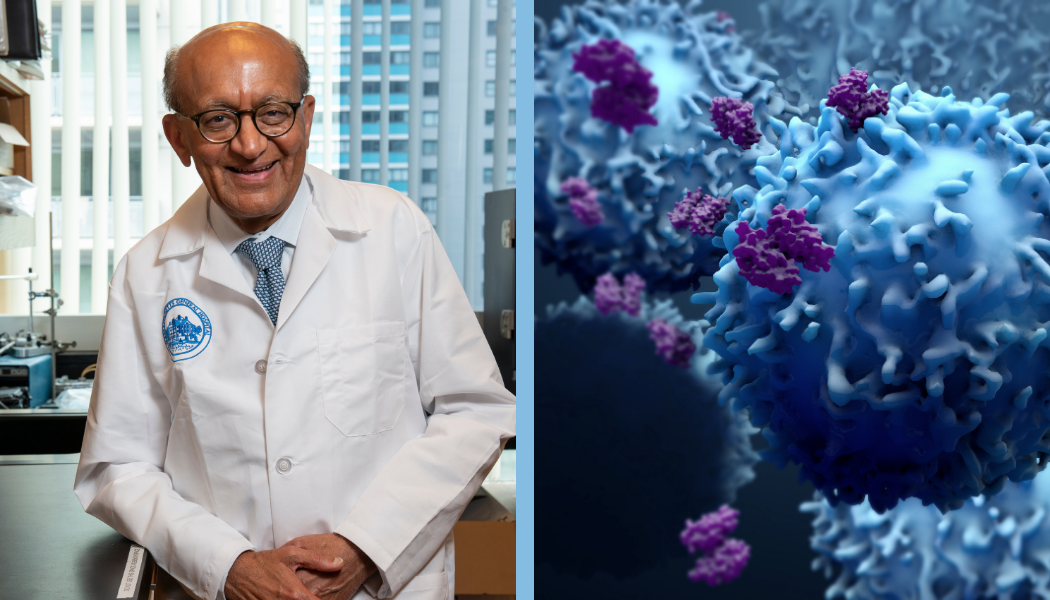Cancer Research Applied to Develop COVID-19 Treatment Strategies
New publication by NFCR-supported scientist Rakesh Jain, Ph.D., applies cancer research findings to help COVID-19 treatment in different patient groups. Few drugs for COVID-19 appear to work well in unselected patients, but now a new mathematical model provides insight into which patients benefit from which treatments.
Researchers and investigators, including NFCR-funded Dr. Rakesh Jain, the principal investigator, from Massachusetts General Hospital, Brigham and Women’s Hospital and the University of Cyprus, have together published a new study in Proceedings of the National Academy of Sciences. This study uses a biology-based mathematical model, originally designed to make treatment decisions for cancer patients based on the conditions of inflammation and the immune system, to make the COVID-19 treatment more effective. The model has incorporated the disease and treatment information about SARS-CoV-2 (the virus that causes COVID-19), which allows the researcher to better understand and treat COVID-19.
Jain and the team discovered that although the level of SARS-CoV-2 increases during the early stages of lung infection, it changes to different directions on day 5, depending on patient’s immune response, especially the level of recruited T-cells, the key and first responders of the immune system.
For healthy patients under 35 years old with sustained T-cell recruitment, if the viral level, inflammation and non-specific immune cells are all reduced, they usually have a lower risk of blood clot, their oxygen levels in the lung would be restored and this group of patients tend to recover well.
On the flip side, for older patients and those with pre-existing conditions such as diabetes, obesity, or high blood pressure, if they already have high levels of inflammation or non-specific immune cells, their treatment outcomes would be poor.
These findings have led to the important treatment recommendations. For older patients with existing inflammation, the sequence of treatment should be using the clot-preventing drug heparin and/or immunotherapy drugs (such as checkpoint inhibitors) in the early stages of the infection and the anti-inflammatory drug, such as dexamethasone, in later stages.
For patients with pre-existing conditions or immune deficiency, treatment may include drugs that inhibit inflammation-promoting cytokines. In addition, high blood pressure drugs that inhibit the renin-angiotensin system are recommended for preventing resistance to blood flow that may be caused by the viral infection.
This impressive study displays how research originally developed for cancer treatment can be useful in combatting COVID-19, which poses a major risk to cancer patients. The National Foundation for Cancer Research is proud to support this collaborative research for the benefit of both cancer and COVID-19 patients.
Learn more about the work of NFCR-supported researchers and scientists here and visit our COVID-19 Resource Center to stay up-to-date with the latest information on the coronavirus and cancer.
Additional Reads You May Enjoy:
New Discovery May Significantly Broaden the Applicability of T-Cell Immunotherapy
Deadly Decisions: COVID-19 or CANCER?
Stay connected with us! Receive our monthly e-newsletter and blogs featuring stories of inspiration, support resources, cancer prevention tips and more. Sign up here.












